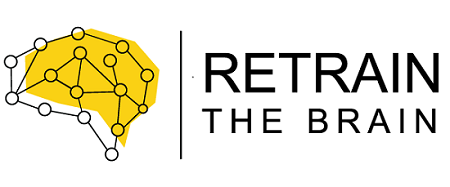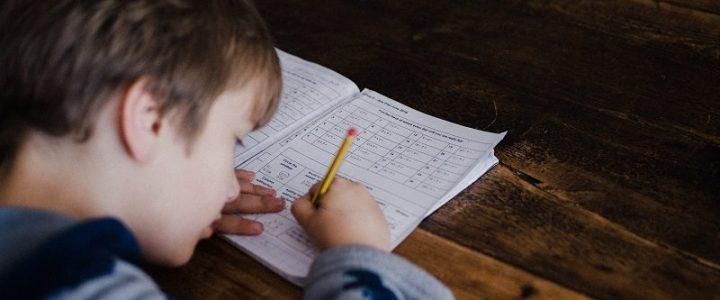If you’re reading this, you may be concerned that your child has learning difficulties, and needs a learning difficulties assessment. If so, you’re certainly not alone. Many children and their parents or careers have the same experience.
Here we’ll discuss what learning difficulties actually are, the symptoms your child may be displaying, why children have them, and how a learning difficulties assessment can help. Click here for more info
What are learning difficulties?
Firstly, let’s define learning difficulties. Learning difficulties describes a set of challenges children can have when learning and/or applying listening, speaking, reading, writing, reasoning, movement, or numerical skills. These challenges usually start to appear between the ages of 4 and 7, but they can also start earlier. Please know that learning difficulties are in no way connected to low intelligence.
We might shrug them off by thinking or saying that our children are ‘off with the fairies’, or ‘easily distracted’, however there may be a deeper issue.
What are the signs my child needs a learning difficulties assessment?
The signs (symptoms) of a learning difficulty aren’t the same in all children, and can vary significantly from one child to the next. They include:

- Difficulty writing
- Difficulty speaking
- Speech articulation problems
- Problems writing
- Problems reading
- Problems spelling
- Problems with math
- Difficulty telling time
- Problems concentrating
- Problems with attention span
- Inability to sit still
- Inability to stay silent
- Educational underachievement
- Problems processing auditory input
- Difficulties learning to swim
- Difficulties learning to ride a two-wheeled bike
- Clumsiness
- Coordination or hand-eye coordination difficulties
- Difficulty learning to dress (doing up buttons, tying shoelaces, putting clothes on the right way around)
- Difficulty using a knife and fork
- Difficulty catching a ball
- Immature pencil grip
- Physical education difficulties
- Your child doesn’t yet consistently favor one side of the body (left or right hand, foot, or ear)
- Travel sickness
- Was early (10 months) or late (16 months) to learn to walk
- Was late to learn to talk
- Poor impulse control
The Underlying challenges behind many learning disability diagnoses
Specific learning difficulties or learning disability diagnoses can sometimes stem from problems with central nervous system (CNS) function. These challenges can include:
- Dyslexia
- Dyspraxia (Development coordination disorder, or DCD)
- Dysgraphia (writing problems)
- Attention deficit disorder (ADD)
- Auditory processing disorder (APD)
- Agoraphobia
- Asperger’s syndrome
- Anxiety and panic disorder
What affects CNS function and therefore learning difficulties?
All children are born with an essential group of reflexes that protect their bodies (via involuntary movement), develop muscle tone, and create brain connections. These are called ‘neonatal reflexes and general reflexes’.
Children’s bodies usually integrate or ‘turn off’ these reflexes as they develop and as their brains become more sophisticated. But in some cases, their bodies ‘hang on’ to these reflexes for longer than they really need them. This can prevent children’s brains and CNS from maturing in the optimal timeframe, limiting higher brain function and voluntary movement patterns.
This creates a ‘battle’ between the old reflexes (involuntary movement your child was born with) and the voluntary movement and other skills they need to learn.
So what may seem like an inability or unwillingness to learn may actually be beyond your child’s control.
Does my child really need help with infant reflexes?
Yes. Here’s why: your child’s first five years are critical to their brain development, learning, and mental health. Children’s brains develop very quickly during that time, when the right kind of stimulation can make all the difference to your child’s development, and their ability to do well at school.
Even if your child is already at school and showing symptoms, it’s OK. With Retrain the Brain, you can start again and give your child a second chance, making their learning and life easier. It all starts with a learning difficulties assessment. Click here for more information.
Children whose learning difficulties aren’t addressed may experience delayed learning and physical development, and self-esteem challenges. They will certainly notice they are different from their classmates.
My child needs a learning difficulties assessment – what do I do now?
I can help you and your child by performing a detailed, non-invasive learning difficulties assessment (an assessment of your child’s physical abilities).
This assessment helps to detect any retained reflexes, and identifies signs of immaturity in many areas: from the general coordination and balance your child needs for posture and sitting still, to the eye movements and coordination they need to read, write, copy, or catch a ball.
Is there anything that can be done to help my child?
Absolutely, yes! The good news is that these challenges are far from permanent. They can be resolved.
How?
Have you heard the term ‘neuroplasticity’? It’s more than a buzzword. It refers to the brain changing in response to our experiences. Yes, your brain can change! Anyone’s brain can change through retraining, including your child’s.
I offer two methods for reflex integration which help the maturation of you or your child’s CNS. They are drug-free, non-invasive programs. The first is Brain Therapy for Neonatal Reflexes and General Reflexes in Adults and Children.
The second method (called the INPP method because it was created by the Institute for Neuro-Physiological Psychology) is movement-based therapy.
Both methods focus on why your child’s learning difficulties exist. Unlike some other therapies, they treat the underlying cause (CNS immaturity) and not just the symptoms I’ve listed above.
Following a complete assessment, I can evaluate and treat your child’s learning difficulty symptoms.
And guess what? Once the underlying cause is identified and treated, a lot of your child’s symptoms will disappear.
How do I know this therapy will work?
Retrain the Brain offers research-based programs proven to support your child’s brain development, learning, and health. The INPP has been around since 1975. Since that time, they have developed reliable methods of identifying and assessing signs of CNS immaturity in children and adults.
Parts of the INPP method have also been independently researched via over 20 studies published in peer-reviewed journals.
I’ve received training in the INPP method and in Brain Therapy for Neonatal Reflexes and General Reflexes in Adults and Children and I know they work; I’ve seen it happen. I’d love to help make a difference for you and your child’s learning and life.
Please know there’s help out there! You’re not alone. Your child’s learning difficulties are common and more importantly, there is a solution. For an initial interest pack to see if a learning difficulties assessment would be helpful, please contact me.

